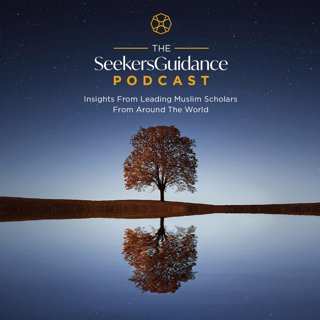
04- Being Productive in Seclusion- Shaykh Sadullah Khan
In this fourth episode, Shaykh Sadullah reminds us of the importance of being optimistic whilst we are in seclusion. Pessimism stifles creativity and productivity. By adopting a positive outlook we wi...
30 Maalis 20202min

03- Loneliness- Shaykh Sadullah Khan
In this third episode, Shaykh Sadullah discusses the notion of loneliness. As human beings, we are social creatures and therefore welcome social interaction. However, being isolated from others can ha...
29 Maalis 20202min

02-Adjusting to Restriction-Shaykh Sadullah Khan
In this second episode, Shaykh Sadullah asks us to reflect on what freedom really means. Many of us have been restricted to our homes due to the Covid-19 pandemic and this can cause a sense of anxiety...
28 Maalis 20201min

01- Now is the Time to Reflect- Shaykh Sadullah Khan
Over the next 21 days, Shaykh Sadullah Khan will share daily messages of introspection, motivation, and inspiration so that we are able to deal with the current global pandemic Covid-19. In this 1st e...
27 Maalis 20203min

Seeking Protection with His Name- Shaykh Yahya Rhodus
In response to the fear and concern brought about by the recent spread of the Covid-19 virus, Shaykh Yahya Rhodus reminds us of the importance of seeking protection with Allah’s Name. In this importan...
24 Maalis 202014min

Dealing with the Coronavirus – Mufti Taha Karaan
In this talk, Mufti Taha Karaan provides a conceptual approach in understanding the phenomenon of a communicable disease in relation to religious law, creed and daily activities of living. The COVID-1...
16 Maalis 202024min

What is true wealth in Islam? – Shaykh Faraz Rabbani
“Wealth is not through a lot of possessions,” said the Prophet (Allah bless him and give him peace). “Rather, wealth is only wealth of spirit.” [Related by Ahmad and others ; sound] Shaykh Faraz Rabba...
7 Helmi 202023min

Flying With Faith Cultivating: Hope and Awe of Allah-Shaykh Faraz Rabbani
If we love Allah, why do we fear Him? Shaykh Faraz Rabbani explains that “fear” (khawf) of Allah is having reverential awe of the Greatness of our Merciful Lord and His tremendous favor upon us. Likew...
10 Tammi 202024min





















